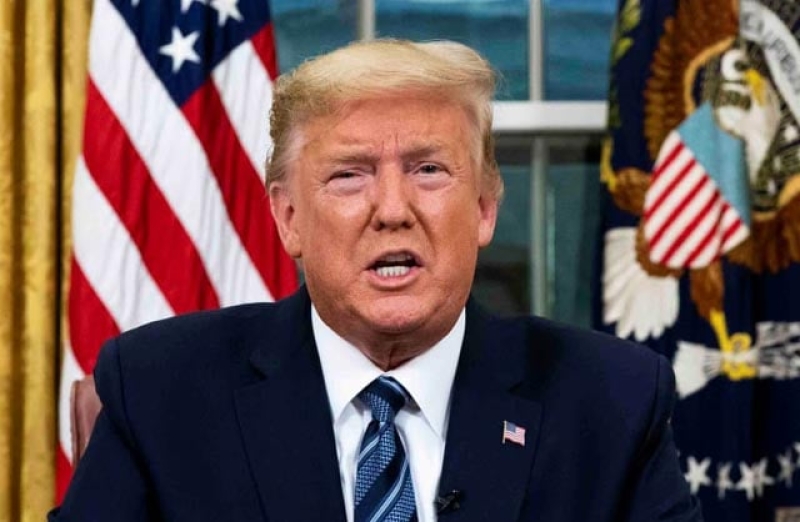- Iran vows to hit all ME economic hubs if US-Israeli attacks persist |
- Sammilito Islami Bank merger to continue: Governor |
- Biman Suspends Flights to Six Middle East Cities Over Tensions |
- Govt Announces 25pc Rail Fare Discount |
- Middle East War Puts Bangladesh Jobs at Risk |
Trump Proposes Canada as 51st U.S. State, But Hurdles Are Huge

President Donald Trump has repeatedly suggested that Canada should become the 51st U.S. state, proposing the removal of the 5,525-mile border between the two nations. While the idea has been widely dismissed as far-fetched by Canadians, the hurdles to making it a reality are steep and nearly insurmountable.
In Trump’s vision, the Lower 48 states would form a contiguous union, with Canada filling the gap between the U.S. mainland and Alaska, leaving Hawaii as the only non-continental state. “If people wanted to play the game right, it would be 100% certain they’d become a state,” Trump remarked recently.
At first, Canada took Trump’s remarks as a joke, with Prime Minister Justin Trudeau flatly rejecting the notion. However, behind closed doors, Trudeau has indicated that Trump’s persistent talk of annexation may be more serious than it initially appeared.
The Process of Adding a New State
To admit a new state, Congress must approve the move. The process requires a simple House majority, but Senate filibuster rules necessitate 60 votes to advance the bill. Even if Congress passes the bill, the president must sign it into law—something Trump has expressed willingness to do. However, there is currently no major legislation pushing for Canada’s statehood.
Canada’s Response
Canadian leaders, including Ontario Premier Doug Ford, have shown little interest in joining the U.S. Ford humorously countered Trump’s suggestion, proposing that Canada buy Alaska and throw in Minnesota for good measure. A statehood bid would likely require a national referendum in Canada, a prospect that is almost certainly a non-starter.
Polls indicate that while Americans generally have a positive view of Canada, many Canadians remain wary of Trump’s administration, particularly after trade tensions and the imposition of tariffs. Canadian sports fans have also voiced their displeasure, booing the U.S. national anthem at NBA and NHL games.
Impact on U.S. Elections
If Canada were to join the U.S.—an unlikely scenario—it would dramatically reshape U.S. politics. With a population of 41.6 million, Canada would become the largest state, surpassing California. It would gain two senators and 55 House seats, giving it 57 Electoral College votes, more than any other state, including California.
However, the Permanent Apportionment Act of 1929 limits the number of House seats to 435, meaning that other states would have to lose representation to accommodate Canada’s new delegates. States like Pennsylvania, Michigan, and Wisconsin, crucial to presidential races, would see their influence reduced as Canadian voters entered the fray.
Other Statehood Debates
While Trump’s Canada proposal is speculative, the debate around new states has typically focused on Puerto Rico and Washington, D.C. Puerto Rico, a U.S. territory, has held multiple nonbinding referendums in favor of statehood, though Congress has yet to approve it. Washington, D.C. residents have also voted for statehood, but the proposal has stalled in the Senate due to Republican opposition.
The Last New State
The most recent addition to the union was Hawaii, which became the 50th state in 1959. The island chain had been a U.S. territory since 1898, but statehood bills faced decades of racial discrimination and political gridlock before finally passing.
While the idea of Canada becoming the 51st state is highly unlikely, it remains an intriguing and controversial proposal—one that would require monumental shifts in both U.S. and Canadian politics.

